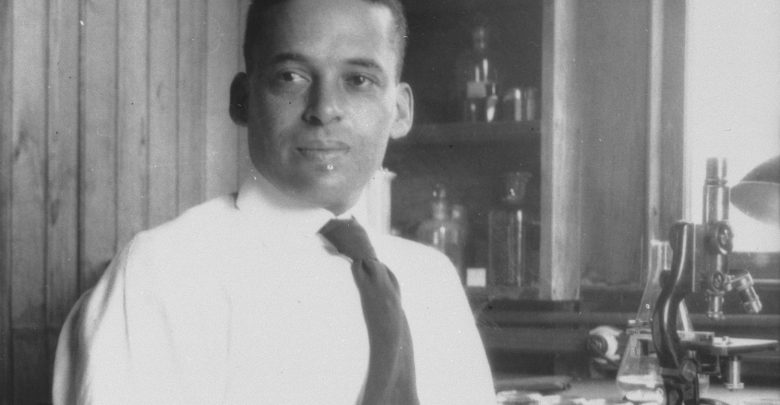Black ScientistsHealthUSA
Ernest Everett Just (1883-1941): A Trailblazer in Cell Biology

Ernest Everett Just was born on August 14, 1883, in Charleston, South Carolina. He was raised by his mother, Mary Matthews Just, after his father died when Ernest was four years old. Mary was a strong and determined woman who instilled in her children the importance of education. She worked hard to ensure that Ernest received the best education possible, despite the challenges of growing up in the racially segregated South.
Just attended the all-Black Industrial School of the State College in Orangeburg, South Carolina, where he excelled academically. Recognizing his potential, his mother sent him to the Kimball Union Academy in New Hampshire, a prestigious preparatory school. He graduated from Kimball in 1903 with high honors and went on to attend Dartmouth College, where he graduated magna cum laude in 1907 with a degree in biology. At Dartmouth, Just was a Rufus Choate Scholar and was elected to the Phi Beta Kappa honor society.
After completing his undergraduate studies, Just accepted a teaching position at Howard University in Washington, D.C., where he would remain for much of his career. While at Howard, he also pursued advanced studies, earning a Ph.D. in experimental embryology from the University of Chicago in 1916. His dissertation focused on the fertilization of marine invertebrates, specifically the structure and function of the egg cell membrane, which would become a cornerstone of his scientific research.
Just’s research was groundbreaking in the field of cell biology, particularly his work on the fertilization process in marine organisms. He discovered that the outer layer of the egg, known as the ectoplasm, plays a crucial role in the fertilization process, challenging the prevailing views of the time. Just’s work emphasized the importance of considering the whole cell and its environment rather than focusing solely on individual components, a perspective that was ahead of its time.
He conducted much of his research at the Marine Biological Laboratory in Woods Hole, Massachusetts, and in Europe, where he collaborated with leading scientists. Despite facing racial discrimination in the United States, Just was respected by his peers internationally and was invited to work at prestigious institutions such as the Kaiser Wilhelm Institute in Berlin.
Throughout his career, Ernest Everett Just faced significant racial barriers, which limited his opportunities in the United States. Despite his accomplishments, he struggled to secure funding and faced exclusion from many academic circles. However, Just remained committed to his research and to mentoring young Black scientists.
Just’s work laid the foundation for many advances in cell biology, and his holistic approach to studying cells influenced future generations of scientists. He was known for his meticulous attention to detail and his ability to integrate various aspects of biology into his research, making him a pioneer in his field.
Just published numerous scientific papers during his career and was awarded the Spingarn Medal by the NAACP in 1915 for his contributions to science. He also co-founded the Omega Psi Phi fraternity at Howard University, which has since grown into a major national organization.
In the late 1930s, Just’s health began to decline, and he returned to the United States from Europe. Despite his health challenges, he continued to work at Howard University until his death. Ernest Everett Just passed away on October 27, 1941, at the age of 58.
Ernest Everett Just is remembered as a pioneering African American scientist who made significant contributions to the field of cell biology. His work on the structure and function of the cell membrane, fertilization, and embryonic development remains influential. Just’s life and career serve as a testament to his perseverance, intellectual rigor, and commitment to science in the face of adversity. Today, he is honored as a trailblazer who paved the way for future generations of Black scientists.





